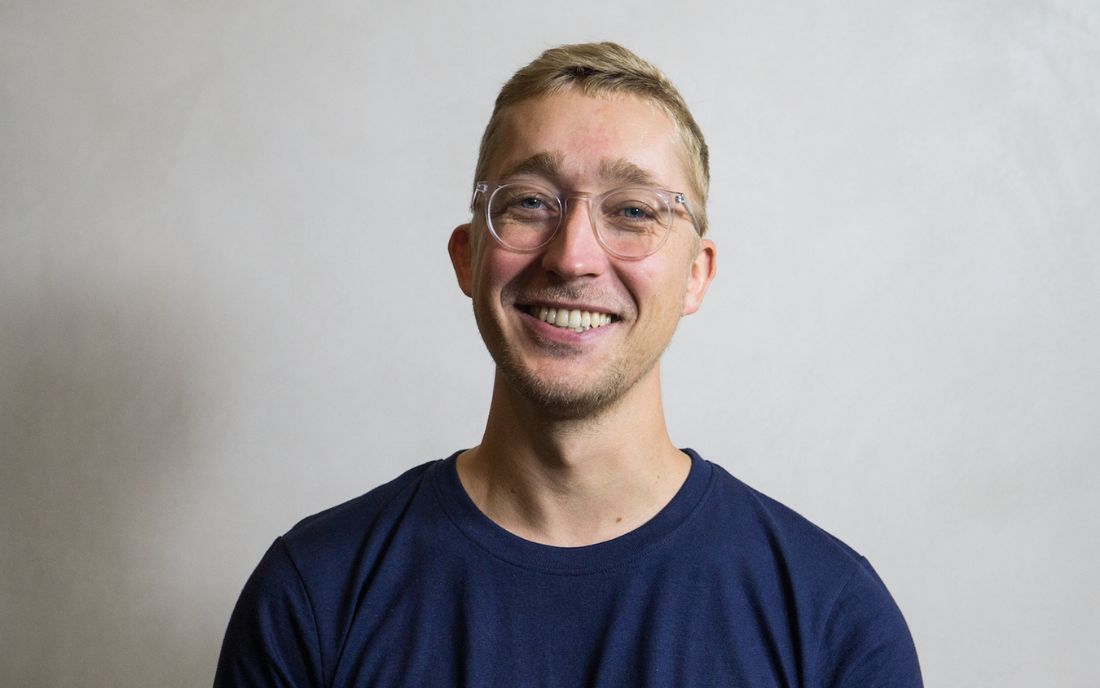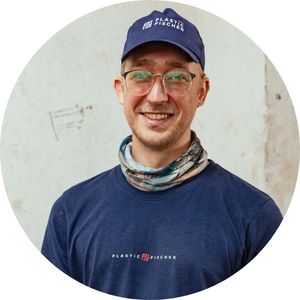“We have collected and processed over 500 tons of plastic in the last 12 months” – INTERVIEW

Karsten Hirsch is a social entrepreneur and founder of Plastic Fischer. His goal is to stop the global plastic pollution of the oceans. Not there, though, because much of the world’s plastic waste ends up in the sea via rivers. If their success also has to do with the fact that they are happy when others copy their open-source technology? Find out in the interview where he got the idea for the floating barriers and whether he separates waste himself.
What problem do you solve with Plastic Fischer? Why does it need exactly your solution?
We take plastic out of rivers before this waste enters the oceans, destroying biodiversity and becoming microplastics.
What did you do before you started the current project/company? And what or who finally motivated you to become a social entrepreneur?
Studied law and worked in a law firm. A vacation with friends in Vietnam triggered the creation of Plastic Fischer, as we saw on the ground the pollution of the Mekong River and realized that at the time no company was focusing on rivers to stop ocean plastic.
What have been your greatest successes so far?
We have collected and processed over 500 tons of plastic in the last 12 months, creating 70 local jobs in India and Indonesia. We were awarded by the WEF and invited to WEF22 in Davos and the UN Water Conference in New York. WDR, Deutsche Welle and other media have reported about us.
Gab es Momente oder Herausforderungen, wo du dachtest, dass du scheiterst und alles hinschmeißen musst?
The scale of the problem is huge, it’s difficult. We haven’t thought about giving up yet. We are one of the most successful and promising companies in the world. We take more plastic out of rivers every week than (the +$100 million found) TheOceanCleanup.
Where should the journey go in the future and what are the next big goals?
We want to grow 1000x our current size and make a significant contribution to curbing the global plastic waste problem.

© Karsten Hirsch
„It is difficult to do without plastic in everyday life. Waste separation is very important and helps a lot to increase the recycling rate. “
— Karsten Hirsch, Founder of Plastic Fischer
As an entrepreneur, what advice would you give to someone who has a great innovative idea but doesn’t know how to get started?
Find the right partners to see the project through together. Dedicate focus and full time to it and take the risk.
What is your personal source of inspiration (e.g. book, podcast, etc.) and what motivates you even on difficult days?
The ocean, the team and my wife. (order has no significance ;-))
What are your tips for doing good in everyday life? And where do you perhaps find it rather difficult to live sustainably?
It is difficult to do without plastic in everyday life. Waste separation is very important and helps a lot to increase the recycling rate. However, proper sorting is not easy because there are many misleading labels on packaging.
Finish this sentence: The world needs more …
… collaboration.
In our new magazine format, we interview interesting entrepreneurs and focus on their ideas and their very personal stories. The interviews are intended to inspire, motivate and encourage people to put their own ideas into practice.
You know an exciting founder or entrepreneur we should interview? Write to us!
Andreas Renner, Co-Founder GOOD: andreas@good-search.org
We supported Plastic Fischer in June 2022 with the proceeds of GOOD. Find out more on the project page:

